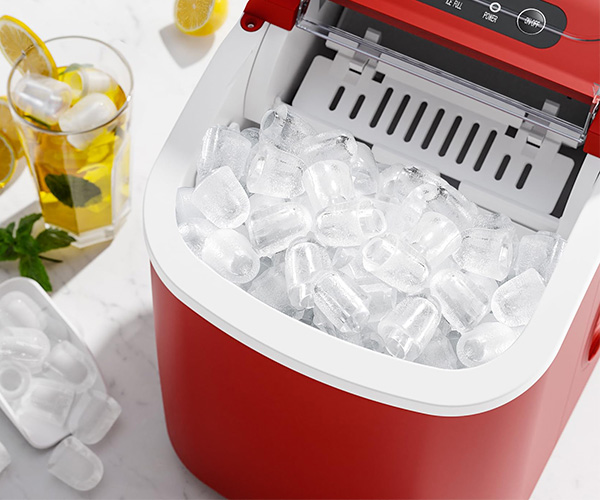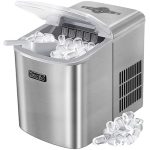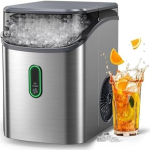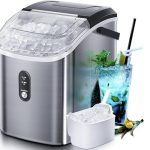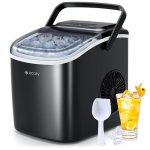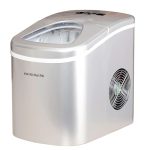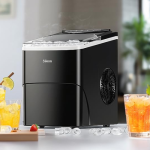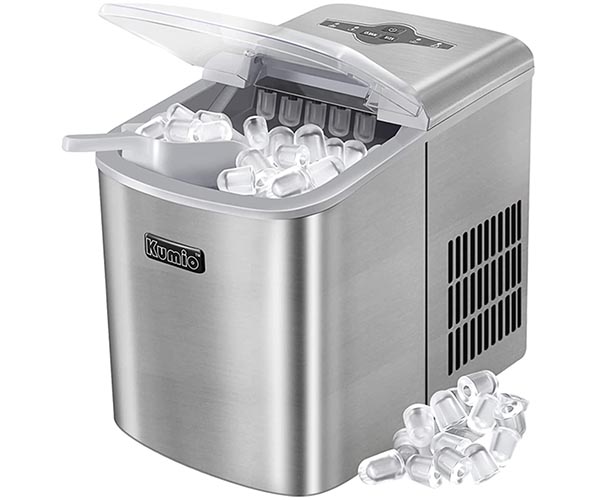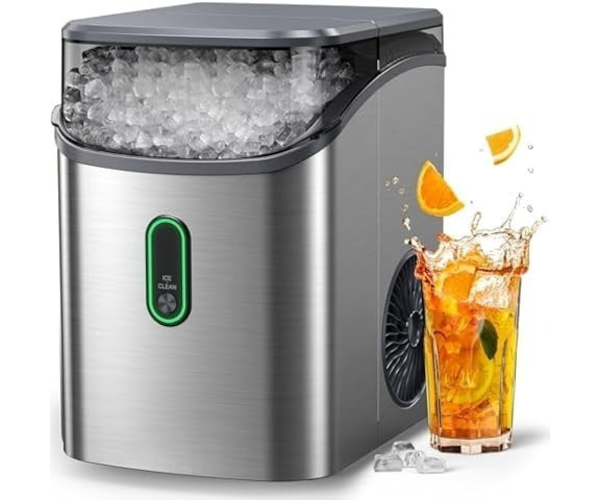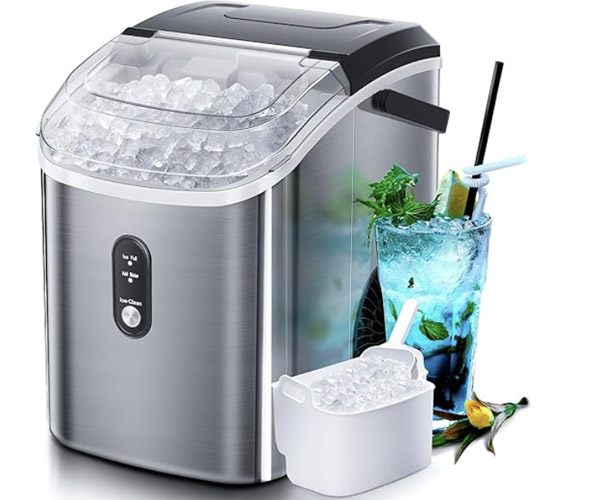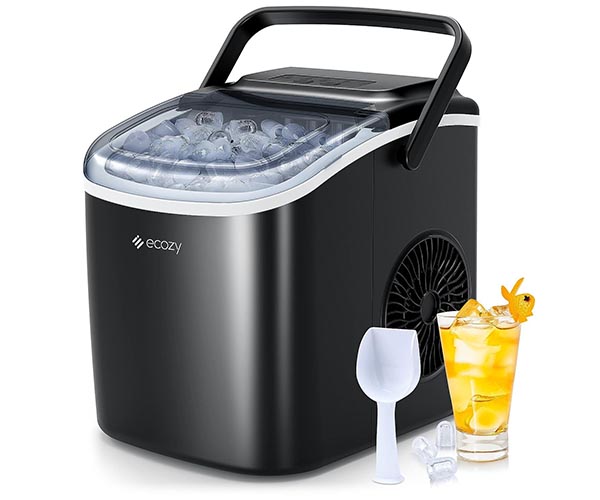Introduction
Have you ever planned a summer barbecue, only to find out that your ice machine has stopped working, despite the fact that it gave the impression that it was still operating? You are not the only one. When it comes to bringing that additional touch to beverages on a hot day, ice makers are crucial. However, they can often be as fickle as the weather itself. In this post, we will delve deeply into the core of your ice machine, examining how it operates, identifying frequent problems, and providing remedies that are both practical and effective in order to recover your machine and get it back in working order. If you are a home bartender or the proprietor of a café, it is important to learn these recommendations because they could prevent your day from wasting away. https://amzn.to/3WoePQf
Understanding Your Ice Machine
When facing the issue of an ice machine running but not making ice, it’s crucial to grasp the fundamentals of how these devices operate. This understanding can illuminate why disruptions in the ice-making process might occur. Here’s a deeper look into the inner workings of your ice machine:
- Basic Operation: At its core, an ice machine functions by using a refrigeration system, similar to a mini-freezer, to turn water into ice. This process involves several key components that work together seamlessly to ensure ice production.
- Key Components:
- Evaporator: Where the water freezes into ice. It’s the heart of the ice machine, where the magic happens.
- Water Inlet Valve: Controls the flow of water into the machine. If this malfunctions, water can’t enter the evaporator, leading to no ice.
- Thermostat: Monitors the temperature within the machine, ensuring conditions are optimal for ice formation.
- Heat Exchanger: Helps in transferring heat out of the water, speeding up the freezing process.
- Cycle of Operation:
- Filling: The machine begins its cycle by filling the ice mold with water from the home’s water supply.
- Freezing: The refrigeration system lowers the temperature inside the molds, turning the water into ice.
- Harvesting: Once the ice is formed, the machine heats the molds slightly to loosen the ice, which is then ejected into the storage bin.
Having an understanding of these components and the functions they play can assist in identifying problems that may be occurring when your ice machine is operating but not generating ice. In this case, the problem could be caused by a malfunctioning thermostat or a water entry valve that is clogged with debris. By being familiar with these components, you will be better equipped to diagnose problems and communicate more effectively with repair specialists, which will result in a speedier resolution to the troubles you are experiencing with your ice machine.
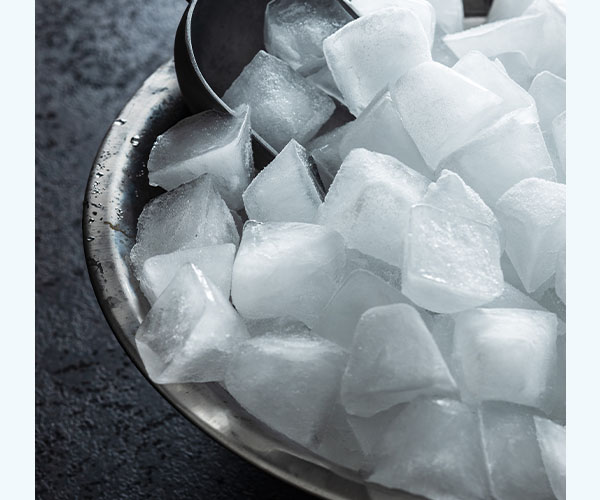
Common Causes of Ice Machine Issues
When your ice countertop ice maker won’t make ice, several factors might be at play. Understanding these issues is crucial for troubleshooting and ensuring your machine operates smoothly. Here, we delve into the most common causes: https://amzn.to/3WoePQf
- Mechanical Failures:
- Frozen lines: Ice machines often suffer from water lines freezing up, which blocks the flow of water needed to make ice.
- Malfunctioning sensors: Sensors that fail to detect water levels or ice bucket fullness can halt ice production.
- Environmental Factors:
- Room temperature: If the environment is too warm, your ice machine may struggle to freeze water efficiently.
- Water supply issues: Low water pressure or impure water can affect the machine’s ability to produce ice.
- Maintenance Lapses:
- Lack of regular cleaning: Ice machines need periodic cleaning to remove scale and mold buildup, which can block mechanisms.
- Overdue filter changes: Old or clogged filters can restrict water flow to the ice maker, preventing it from making ice.
In the event that you take early action to address these concerns, you can assist maintain the durability and effectiveness of your ice machine, so ensuring that it will continue to create quality ice when you require it the most. A common source of disturbances in the manufacturing of ice can be avoided by keeping a watch on these characteristics.
Troubleshooting Steps
When your countertop ice maker won’t make ice, the frustration can be overwhelming. Here’s a comprehensive guide to help you identify and fix the problem without needing to call a professional immediately:
- Check the Power Supply:
- Ensure that your ice maker is plugged in and the outlet is functioning. Sometimes, the solution is as simple as resetting the circuit breaker or checking for a loose plug.
- Inspect the Water Supply:
- Make sure that the water line feeding into your ice machine isn’t kinked or blocked.
- Check the water filter; a clogged filter can restrict the flow of water necessary for ice production.
- Temperature Settings:
- Verify that the environment temperature is within the operating range for your ice maker. Extreme temperatures can impact the machine’s ability to produce ice.
- Check for Freezing Issues:
- Look inside the machine to see if there’s a build-up of ice that might be blocking the mechanisms. Sometimes, ice fails to drop into the bin and instead builds up on the evaporator.
- If you find ice buildup, carefully remove it using a plastic scraper and restart the machine.
- Sensor Checks:
- Many ice makers have sensors that detect when ice is ready to be harvested. If these sensors are dirty or malfunctioning, they can prevent ice production.
- Clean any visible sensors with a soft cloth and check for any error messages that might indicate sensor problems.
- Cleaning and Maintenance:
- Regular cleaning is crucial. Residue from water can build up and interfere with the components. Follow your manufacturer’s guidelines for cleaning.
- Descaling the machine regularly is important, especially if you have hard water.
- Mechanical Components:
- Inspect moving parts like the ejector arm or the shutoff arm. If these parts are stuck, they can prevent the cycle from continuing.
- Listen for any unusual noises which could indicate a mechanical failure.
- Professional Help:
- If you’ve gone through these steps and your ice maker still isn’t working, it may be time to consult with a technician. Sometimes, issues like coolant leaks or compressor problems are best handled by professionals.
This guide should help you troubleshoot why your countertop ice maker won’t make ice. Remember, regular maintenance and early detection of minor issues can prevent most problems from escalating, keeping your ice maker functional and efficient.
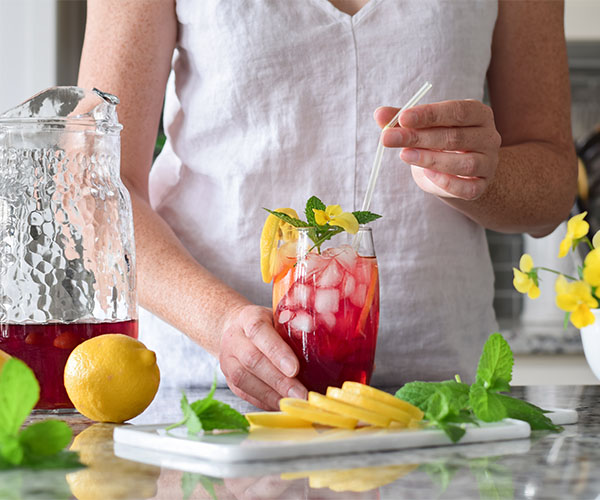
Preventive Measures
Maintaining your countertop ice maker in prime condition not only ensures it produces quality ice but also extends its lifespan. Here are some essential tips to prevent common issues like the machine not freezing effectively:
- Regular Cleaning: Ensure you clean your ice machine every six months to prevent build-up that can obstruct the freezing process. Use a manufacturer-approved cleaning solution to clear out any mineral deposits.
- Check the Freezer Settings: It might sound basic, but ensuring your ice maker’s freezer settings are correct can prevent problems before they start. The freezer temperature should be low enough to sustain ice production but not so low that it causes the internal mechanisms to freeze up.
- Water Supply Management:
- Inspect water lines regularly for kinks or leaks which could affect water flow and ice production quality.
- Change water filters every six months to ensure clean water for ice production and to reduce the risk of mineral buildup in the lines.
- Environmental Considerations: Place your ice maker in an environment with stable, cool temperatures and away from direct sunlight. Fluctuations in room temperature can cause the appliance to overwork, impacting its freezing capabilities.
- Preventive Maintenance Checks: Schedule annual check-ups with a professional technician to handle more complex maintenance tasks such as refrigerant level checks and motor inspections.
- Power Management: Ensure that your ice maker is connected to a reliable power source. Frequent power fluctuations can interfere with the freezing cycle and damage the unit over time.
By implementing these preventive measures, you can help ensure that your countertop ice maker remains efficient and effective, avoiding common issues like not freezing. Regular upkeep not only saves you from unexpected disruptions during hot summer days but also minimizes the need for costly repairs.
Expert Advice
When tackling issues with your countertop ice maker not freezing, it’s wise to seek insights directly from those who know these machines inside out. Here’s what some industry experts have to say about common problems and their solutions:
- Understanding the Mechanism: Before diving into repairs, it’s crucial to understand how your ice maker works. This knowledge can significantly streamline the troubleshooting process.
- Consult the Manual: Always check your ice maker’s manual first. It often includes model-specific advice and troubleshooting steps.
- Expert Tips:
- Check Airflow: Ensure your ice maker has enough clearance around it for adequate airflow. Poor ventilation can lead to overheating, affecting the freezing cycle.
- Water Supply Check: Experts recommend checking the water line for kinks or blockages if your ice maker isn’t freezing properly. A steady water supply is crucial.
- Temperature Settings: Sometimes, the ambient temperature plays a significant role. If the room temperature is too high, your ice maker might struggle to freeze properly.
- Sensor Checks: Faulty sensors can misread temperatures, stopping the freezing process prematurely. Sensor issues are common but often overlooked.
- Professional Maintenance:
- Regular Service: Scheduling regular service can prevent many problems. Technicians can spot issues before they worsen.
- Replacement Parts: Sometimes, replacing a part is more cost-effective than extensive repairs. Experts can provide guidance on whether a repair or replacement is more viable.
- Manufacturer’s Advice:
- Specific Brand Guidelines: Following guidelines provided by your ice maker’s manufacturer can extend the machine’s lifespan and ensure it operates efficiently.
- Warranty Information: Keep your warranty active by using authorized service providers for repairs. This can also ensure you get the best parts and service for your machine.
It is possible to substantially improve the performance and longevity of your ice maker by incorporating these professional insights into your routine maintenance routine. This will ensure that your ice maker is able to supply ice properly anytime you require it. Keep in mind that an ice maker that has been properly maintained is less likely to experience freezing problems, which will save you both time and inconvenience in the long term. https://amzn.to/3WoePQf
Conclusion
As we wrap up our comprehensive guide on troubleshooting ice machines, particularly when your countertop ice maker not freezing, it’s essential to reflect on the key insights we’ve shared. This article not only helps you understand the workings of your ice machine but also empowers you to take actionable steps to resolve and prevent issues.
- Review Maintenance Practices: Regularly check and clean your machine to prevent most issues before they start.
- Monitor Environmental Conditions: Ensure the machine is operating in an optimal environment— not too hot or too cold.
- Seek Professional Help When Needed: If problems persist, consult a professional to avoid causing further damage to your machine.
Remember, a well-maintained ice machine is less likely to face freezing issues, saving you time and inconvenience in the long run. Take these tips to heart, and you’ll minimize the chances of your countertop ice maker not freezing just when you need it most.
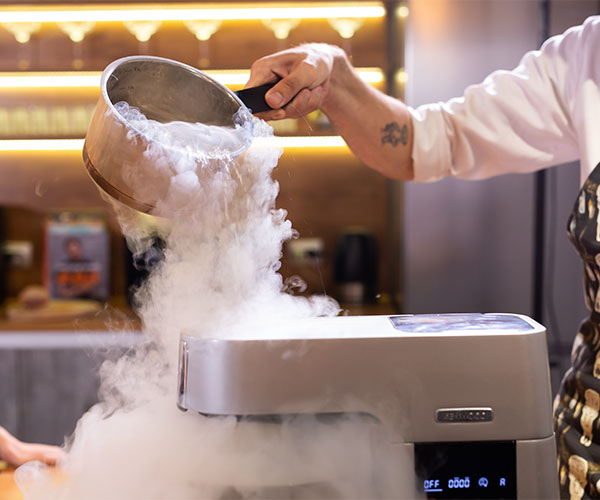
FAQs About Ice Machine Issues
1. Why is my ice machine running but not making ice?
- This could be due to a number of issues including blocked water lines, malfunctioning sensors, or a frozen evaporator. Check for any obstructions and ensure the sensors are working properly.
2. Could a dirty filter cause my ice machine to stop producing ice?
- Yes, a clogged filter can restrict water flow necessary for ice production. Regularly replacing or cleaning the filter can prevent this issue.
3. What should I check if my ice machine is not freezing?
- Verify the freezer temperature is set correctly. It should be low enough to allow freezing. Also, inspect the water supply lines for leaks or kinks.
4. How do I reset my ice machine to solve non-freezing issues?
- Most ice machines have a reset button or procedure outlined in the user manual. This can often resolve electronic glitches affecting performance.
5. Is it normal for an ice machine to stop making ice if it’s too warm in the room?
- Yes, ice machines need a cool environment to operate efficiently. High room temperatures can prevent the machine from freezing water properly.
6. How often should I clean my ice machine to keep it running smoothly?
- It’s recommended to clean your ice machine every 3 to 6 months, depending on usage. This prevents scale buildup and maintains efficient operation.
7. What role does the evaporator play in ice making, and how can it cause issues?
- The evaporator is where the water freezes into ice. Issues like a dirty or damaged evaporator can prevent ice formation, requiring maintenance or replacement.
8. Can a power surge affect my ice machine’s ability to produce ice?
- Yes, power surges can damage the electronic components of your ice machine. Using a surge protector can help mitigate this risk.

